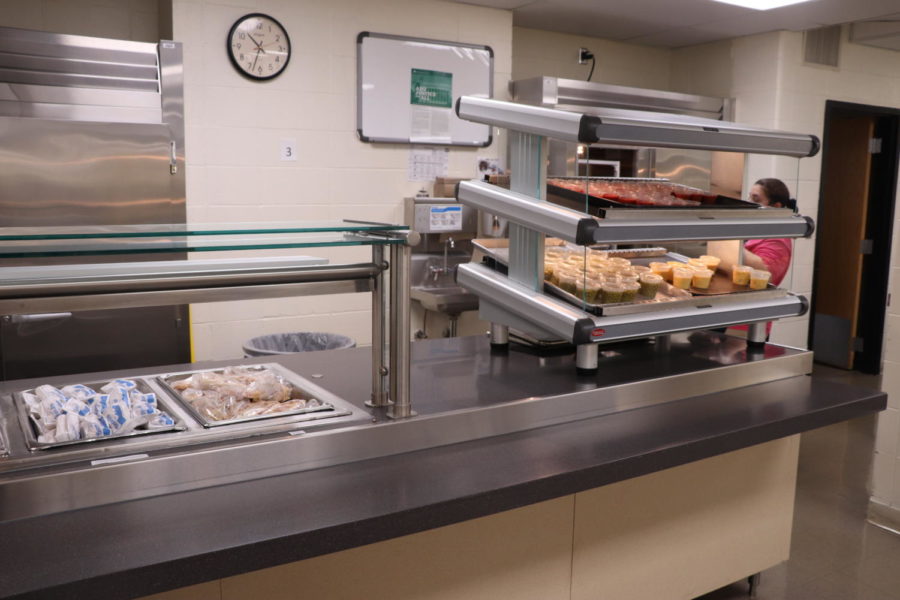OHS staff works around food, staff shortage
Eating balanced, healthy meals is crucial to a student’s ability to focus, learn and grow in the school setting, but in recent months, feeding the youth has become significantly more challenging.
Kohl Wholesale, the main food distributor for most schools in Missouri and Illinois, is struggling through a workers shortage. Due to COVID being an avid destructor of normal routine, the lockdowns and quarantines are still impacting company distribution.
“We get a lot of our food from factories, so if they’re not producing the products or workers are not allowed to be working, products are not being made,” MSD School Food & Nutrition director Katie Gegg said. “As things started to open back up, there were staff shortages because people didn’t want to go back to work or they were fearful. Not as many staff were there in the manufacturers producing, but [they] still had the demand.”
Gegg describes COVID’s effect on worker shortages as a “domino effect,” which is still affecting school lunches today. Lack of workers in factories has directly influenced the amount and types of food Oakville and Mehlville High School can put on their menus for lunch.
“People still need to eat, but there’s not enough workers to make it happen,” Gegg said.
In order to meet the federal government’s guidelines to receive money back from the United States Department of Agriculture (USDA), certain types of ranges need to be met for different age groups.
“Being a part of the federal program, there’s a lot of rules we have to follow. A lot of those are nutrient standards, staying within a certain calorie range based on age category, and a certain sodium range for age groups,” Gegg said.
Along with making sure that specific caloric and sodium ranges are kept in mind, MSD School Food & Nutrition coordinator Maggie Holtzmann and Gegg have to determine the best entrees options for students.
“When I write the menu, I have to write it not only for what you guys like–I try to menu things that are popular among the different age groups and what you would get in a restaurant–but I also have to menu stuff and be in compliance with the federal guidelines,” Gegg said.
It is nearly impossible to create a menu that everyone will enjoy, but Gegg and Holtzmann have said they work with students who have medically diverse dietary needs to supply them with options to have a satisfying meal that works for their diets. If dietary restrictions are the student’s personal choice, there will always be some lunch items available that are gluten-free, meatless, etc.
“We normally don’t cater to ‘well if I don’t eat gluten, it just makes me feel better, I’m in a better mood’ because gluten-free is pretty expensive if you go to the grocery, so for us to bring in a specialized product it’s normally a medical thing, but there’s always salads available, there’s always gluten-free choices for those who just don’t want to eat gluten,” Gegg said.
As far as the school’s breakfast program, things have changed significantly, and Gegg says it is for the better. It has changed to a “grab-and-go” style, which took away messier menu options, such as items with syrups, as they cannot be efficiently eaten in classrooms. They have switched to prepackaged items that students can grab from the carts on their way to class.
“It actually has been for [our] benefit. The breakfast program has actually grown probably triple, if not four times. the amount we served before,” Gegg said.
Gegg has been working tirelessly with the lunch staff at every MSD school in order to keep the worker and food shortage issues from harming the students, and says that “no matter what woes we’re feeling in our department,” the kitchen staff always tries their best to not let their problems affect the students.
“The lunch staff at Oakville are always so kind,” Sydney Ladage (11) said, “and I’ve never really even noticed that we had a food shortage.”

Hi everybody! My name is Leyla Vilic, and I am a senior this year. I love to read all types of books, but especially fantasy, thriller and historical fiction....

















